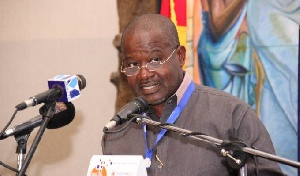The Public Interest & Accountability Committee (PIAC) has advised government to resume its hedging programme in order to help mitigate the impact of the volatility of crude oil prices on the world market.
It said the hedging programmes being implemented by Tullow Ghana and Kosmos were beneficial.
PIAC, which disclosed this in its latest report on the management of petroleum revenues for 2015 launched recently in Accra, also called on the Ministry of Finance to desist from spending more than the required Annual Budget Funding Amount (ABFA) allocation, which is in total violation of Section 18 of the Petroleum Revenue Management Act (PRMA).
“PIAC has observed that in the past five years, the government does not adhere to the selected priority areas and tends to spend ABFA on other areas that are not strictly under the four priority areas. PIAC is therefore calling for clear guidelines and definitions of the selected priority areas to avoid amorphous expenditure.”
It stated that the capacity building (including oil and gas) under Annual Budget Funding Amount (ABFA) expenditure has not in practice resulted in the enhancement of indigenous expertise and know-how in the oil and gas sector as required in the Local Content Regulations.
.
PIAC asked the Minister of Finance to redirect his focus on building of capacity in oil and gas sector.
The Committee also mentioned that in order not to abuse the utilization of petroleum revenues on many social interventions, government should be mindful and transparent in the choice of projects, particularly those that are not sustainable.
Additionally, it recommended the disbursement of more than the 11 percent of the country’s petroleum revenues so far disbursed to the sector over the past five years to help transform it and boost productivity.
“PIAC sees the proposed 3.78 percent year-to-year increase in the allocation to the agriculture modernization priority sector in the 2016 Budget as a step in the right direction, and the Minister of Finance should ensure that the allocated amount gets disbursed on time and used to support interventions in agricultural mechanization and post-harvest losses technologies.”
Business News of Monday, 27 June 2016
Source: dailyguideafrica.com













